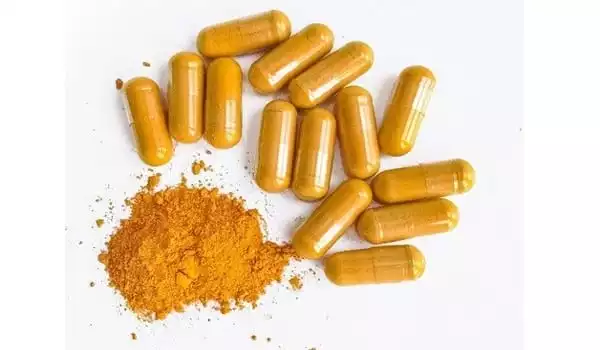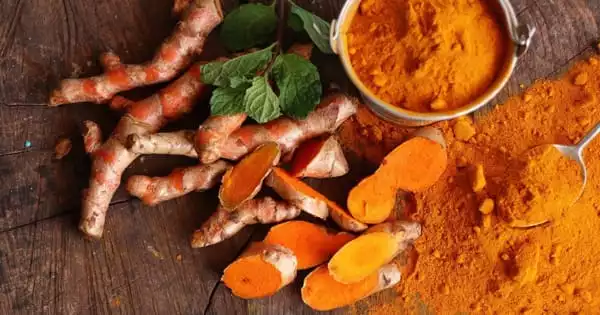Curcumin is a nutritional compound found in the turmeric plant’s rhizome or rootstalk. A typical turmeric rhizome contains between 2% and 5% curcumin. Extensive research in modern science has revealed that the powerful health benefits of turmeric rhizome are due to curcumin. Turmeric’s main active ingredient is curcumin. It has potent anti-inflammatory properties and is a potent antioxidant.
Curry fans have long claimed that turmeric has anti-inflammatory properties, but its active compound, curcumin, has long frustrated scientists hoping to validate these claims with clinical studies. The body’s inability to absorb curcumin has been a thorn in the side of medical researchers looking for scientific proof that curcumin can successfully treat cancer, heart disease, Alzheimer’s, and a variety of other chronic health conditions.
Curcumin can now be delivered effectively into human cells via tiny nanoparticles, according to researchers from the University of South Australia (UniSA), McMaster University in Canada, and Texas A&M University.
Curcumin is a compound that suppresses oxidative stress and inflammation, both of which are key pathological factors in Alzheimer’s disease, and it also aids in the removal of amyloid plaques, which are small fragments of protein that clump together in the brains of Alzheimer’s patients.
Professor Sanjay Garg
Until now, trials to discover usable pharmaceutical properties have been hampered by the body’s inability to easily absorb curcumin. Curcumin can be effectively delivered into human cells via tiny nanoparticles, according to researchers from the University of South Australia, McMaster University in Canada, and Texas A&M University.
Sanjay Garg, a professor of pharmaceutical science at UniSA, and his colleague Dr. Ankit Parikh are part of an international team that has developed a nanoformulation that alters the behavior of curcumin, increasing its oral bioavailability by 117%.
In animal experiments, the researchers demonstrated that nanoparticles containing curcumin not only prevent but also reverse the cognitive deterioration. This discovery paves the way for Alzheimer’s clinical trials.

According to co-author and UniSA neuroscientist Professor Xin-Fu Zhou, the new formulation could be used to treat Alzheimer’s disease. “Curcumin is a compound that suppresses oxidative stress and inflammation, both of which are key pathological factors in Alzheimer’s disease, and it also aids in the removal of amyloid plaques, which are small fragments of protein that clump together in the brains of Alzheimer’s patients,” Prof Zhou explains.
Curcumin is now being tested using the same delivery method to see if it can also prevent the spread of genital herpes. “To treat genital herpes (HSV-2) you need a more absorbable form of curcumin, which is why it needs to be encapsulated in a nano formulation,” Prof Garg explains. “Curcumin can inhibit the genital herpes virus, reduce inflammation, and make it less susceptible to HIV and other STIs,” Prof Garg explains.
Because bacterial and viral infections in the female genital tract (FGT) impair the mucosal barrier, women are biologically more vulnerable to genital herpes. Curcumin, on the other hand, can reduce genital inflammation and control HSV-2 infection, which would aid in the prevention of HIV infection in the FGT.
Turmeric has a complicated medical history. On the one hand, it has been used for thousands of years in Ayurvedic medicine, primarily to treat sprains and improve digestive function. It is thought to be highly bioactive, with anti-inflammatory and antioxidant properties, and has recently gained a reputation as a superfood.
Curcumin, its most well-known active compound, on the other hand, has failed to live up to the hype. A review of the scientific literature on curcumin published in 2017 concluded that the compound provided few actual health benefits. Because it is so unstable and reactive, it quickly disintegrates within the body and lacks the properties that would be ideal in a drug candidate. In fact, with a bioavailability of less than 1%, some researchers believe curcumin is a therapeutic dead end.





